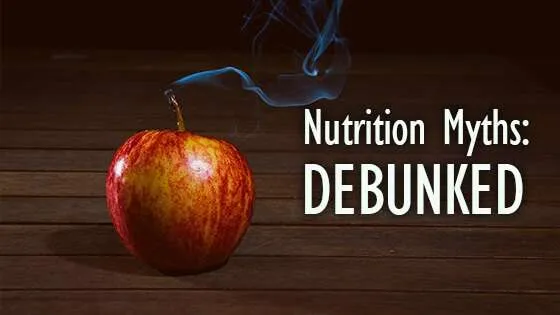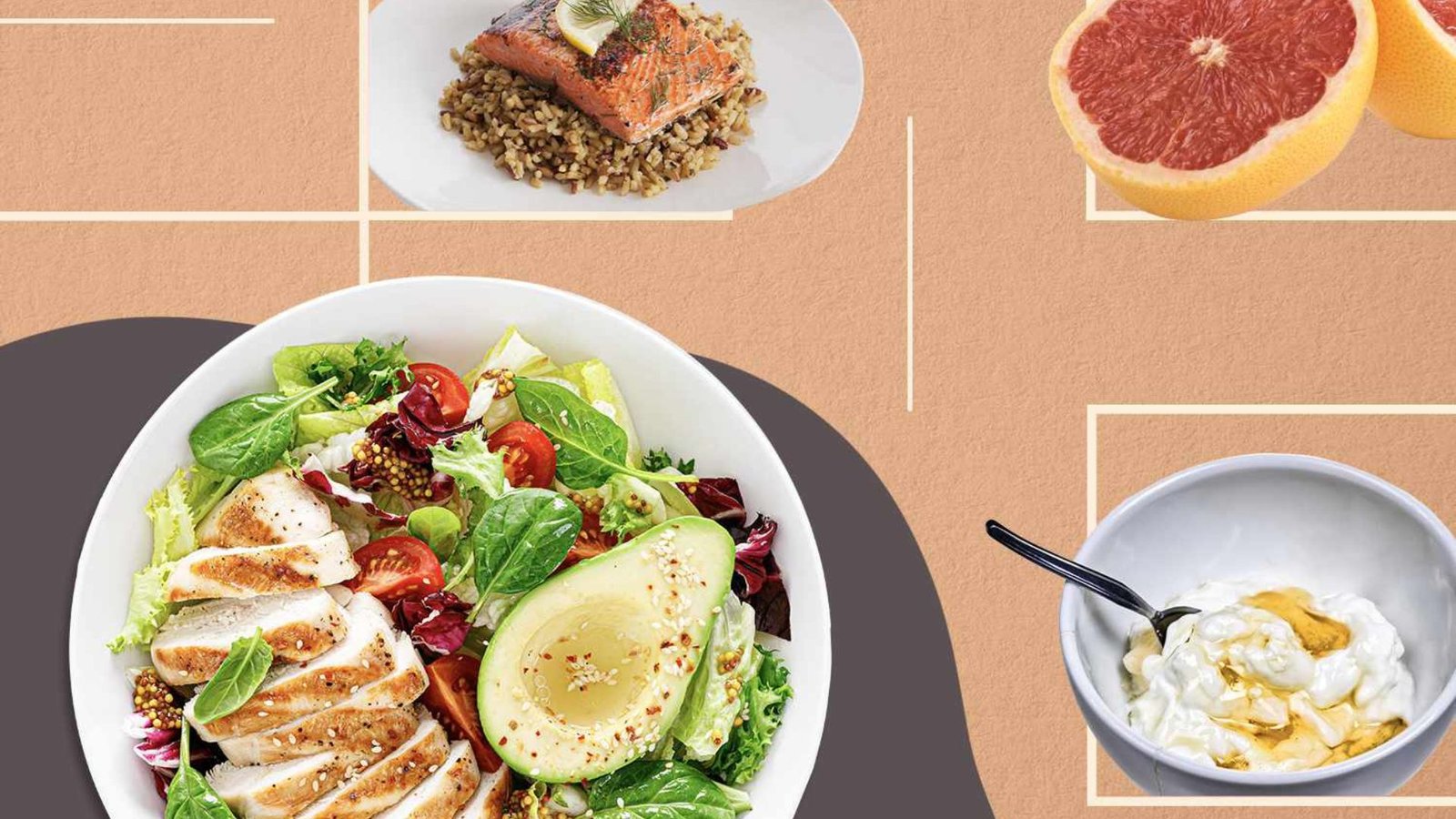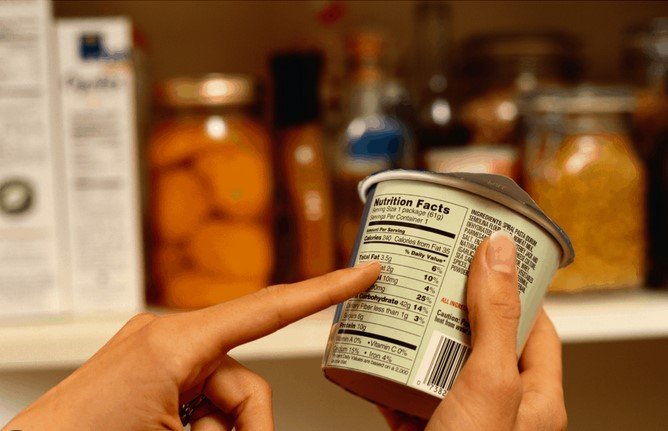With so much information about diets and nutrition flooding social media and the internet, it’s easy to feel overwhelmed—and misled. While some advice is rooted in science, plenty of nutritional myths persist, steering people away from healthy habits.
In this blog, we’ll debunk some of the most common nutrition myths and uncover the facts you need for a healthier lifestyle.
1. Myth: Fat-Free Foods Are Always Healthier
Fact: Fat-free doesn’t mean healthy.
Many fat-free products are loaded with sugar, artificial additives, and salt to compensate for the loss of flavor caused by removing fat. Your body actually needs healthy fats (like those from avocados, nuts, and olive oil) for energy, hormone regulation, and brain function.
Tip: Opt for whole foods with natural fats and focus on quality over “fat-free” labels.
2. Myth: Carbs Are Bad for You
Fact: Not all carbs are created equal.
Carbohydrates are your body’s primary energy source. While refined carbs like white bread and sugary snacks should be limited, complex carbs (like whole grains, fruits, and vegetables) are essential for a balanced diet. They provide fiber, vitamins, and slow-burning energy.
Tip: Replace refined carbs with whole, nutrient-dense options like quinoa, oats, and sweet potatoes.
3. Myth: Eating Late at Night Causes Weight Gain
Fact: It’s not when you eat but what and how much you eat.
Weight gain occurs when you consume more calories than you burn, regardless of the time of day. Late-night snacking often involves unhealthy, calorie-dense foods, which is the real culprit.
Tip: If you’re hungry at night, choose a light, protein-rich snack like Greek yogurt or a small handful of nuts.
4. Myth: Detox Diets Cleanse Your Body
Fact: Your liver and kidneys naturally detox your body.
“Detox” teas, juices, and diets are trendy but unnecessary. Your body is well-equipped to eliminate toxins on its own, thanks to your liver, kidneys, and digestive system.
Tip: Focus on hydration, eating whole foods, and getting enough fiber to support your body’s natural detoxification process.

5. Myth: High-Protein Diets Are Bad for Your Kidneys
Fact: A high-protein diet is safe for most people.
Unless you have pre-existing kidney issues, eating a high-protein diet does not harm your kidneys. In fact, protein is essential for muscle repair, immunity, and hormone production.
Tip: Balance your protein intake with carbs and healthy fats for a well-rounded diet.
6. Myth: You Need to Avoid All Sugar
Fact: Natural sugars from fruits are healthy in moderation.
Not all sugars are harmful. Added sugars in processed foods are linked to health problems like obesity and diabetes, but natural sugars in whole fruits come with fiber, vitamins, and antioxidants that support health.
Tip: Cut out added sugars but enjoy fruits like berries, apples, and oranges as part of a balanced diet.
7. Myth: Gluten-Free Diets Are Healthier for Everyone
Fact: A gluten-free diet is only necessary for those with celiac disease or gluten sensitivity.
Gluten-free products often contain refined flours, sugar, and additives to mimic the texture of gluten. For most people, whole-grain foods with gluten (like wheat, barley, and rye) provide fiber, vitamins, and minerals.
Tip: If you don’t have a medical condition, there’s no need to avoid gluten-containing whole grains.
8. Myth: Fresh Produce Is Healthier Than Frozen
Fact: Frozen fruits and vegetables can be just as nutritious as fresh ones.
Frozen produce is typically flash-frozen at peak ripeness, preserving its nutrients. Fresh produce, on the other hand, can lose vitamins during storage and transport.
Tip: Choose frozen fruits and vegetables with no added sugar or sauces to maximize nutrition.
9. Myth: Drinking Coffee Dehydrates You
Fact: Coffee contributes to your daily water intake.
While caffeine has a mild diuretic effect, the water in coffee still helps hydrate you. In moderation, coffee can even provide health benefits like antioxidants and improved focus.
Tip: Stick to moderate coffee consumption (3–4 cups a day) and balance it with plenty of water.
10. Myth: Skipping Breakfast Is Bad for You
Fact: Skipping breakfast isn’t harmful for everyone.
The idea that breakfast is the “most important meal of the day” depends on your lifestyle and preferences. Some people feel energized and focused by delaying their first meal, such as those practicing intermittent fasting.
Tip: Whether you eat breakfast or not, focus on balanced meals that suit your body’s needs.
11. Myth: Eggs Increase Cholesterol Levels
Fact: Eggs don’t significantly affect blood cholesterol for most people.
Eggs are nutrient powerhouses packed with protein, healthy fats, and vitamins. Studies show that dietary cholesterol has minimal impact on blood cholesterol in most individuals.
Tip: Enjoy whole eggs in moderation as part of a balanced diet.
12. Myth: Vegan and Vegetarian Diets Lack Protein
Fact: Plant-based diets can provide all the protein you need.
Foods like lentils, chickpeas, tofu, tempeh, quinoa, nuts, and seeds are excellent sources of plant-based protein. Combining a variety of these ensures you get all essential amino acids.
Tip: Plan meals with protein-rich plant foods to meet daily requirements.
Conclusion: Separating Fact from Fiction
Nutrition myths often stem from outdated beliefs or misinformation. Understanding the science behind healthy eating empowers you to make informed choices without falling for fad diets or trends.
Focus on:
- Whole, unprocessed foods
- Balanced meals with healthy fats, proteins, and carbs
- Moderation and variety
By debunking these myths, you can take practical steps toward better health and well-being.











